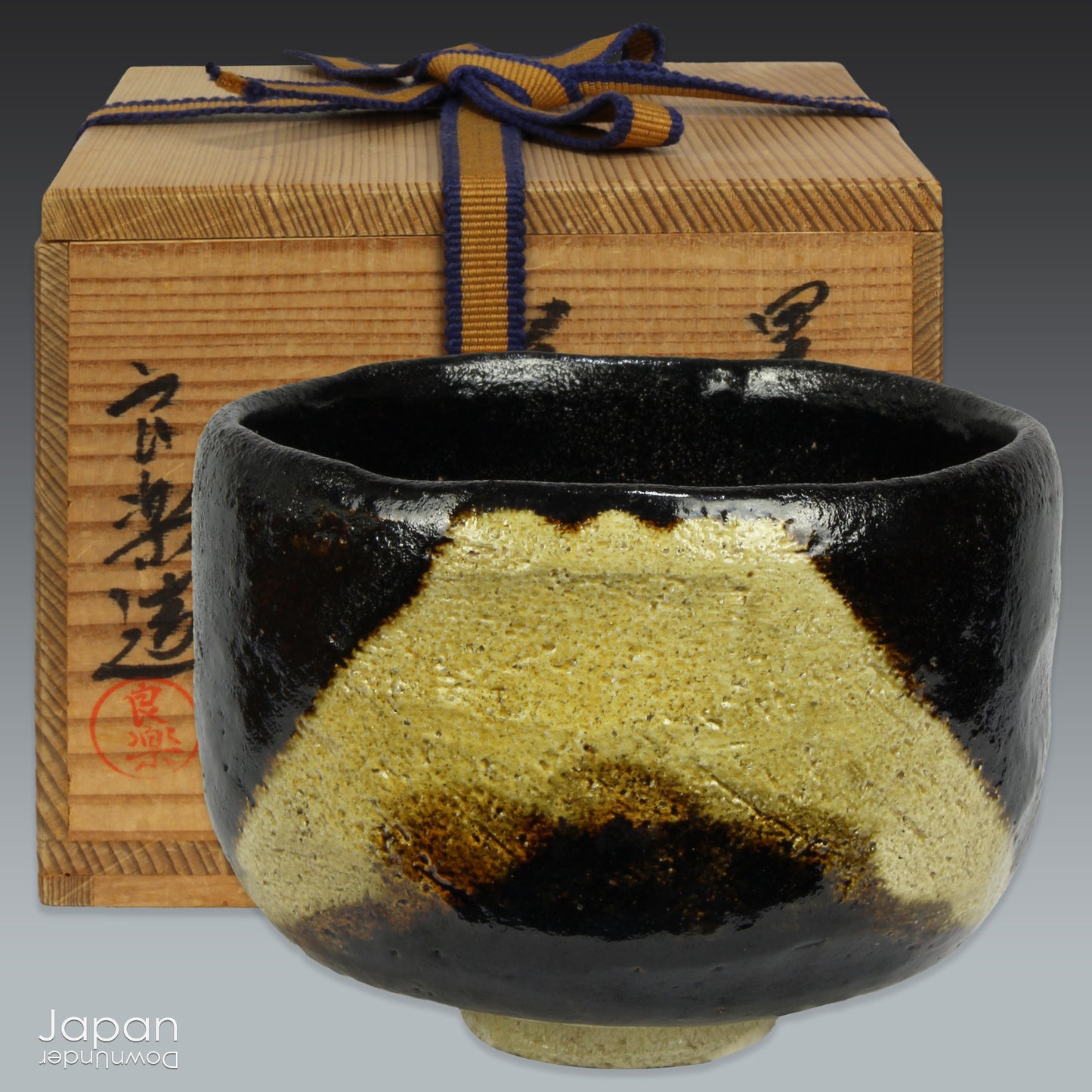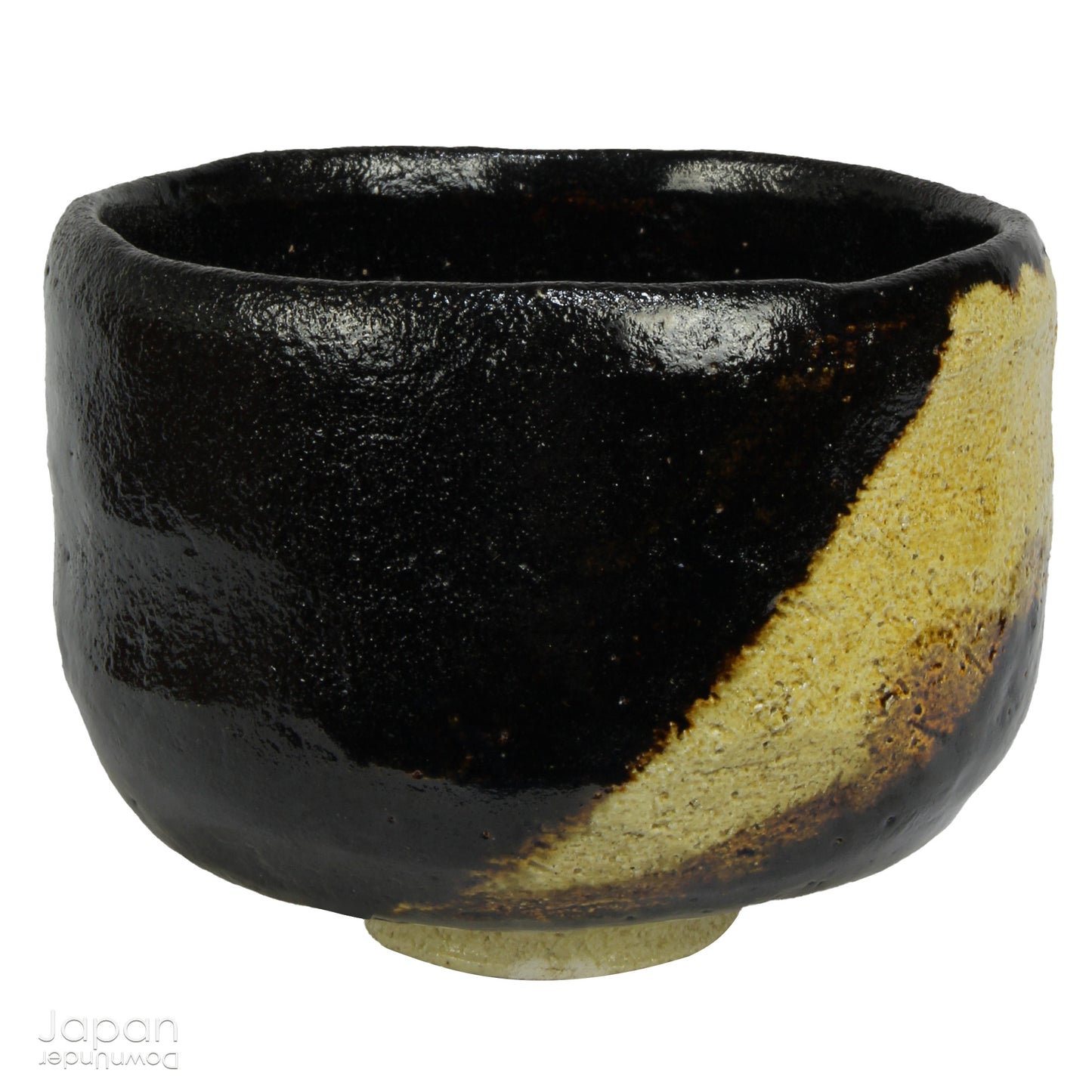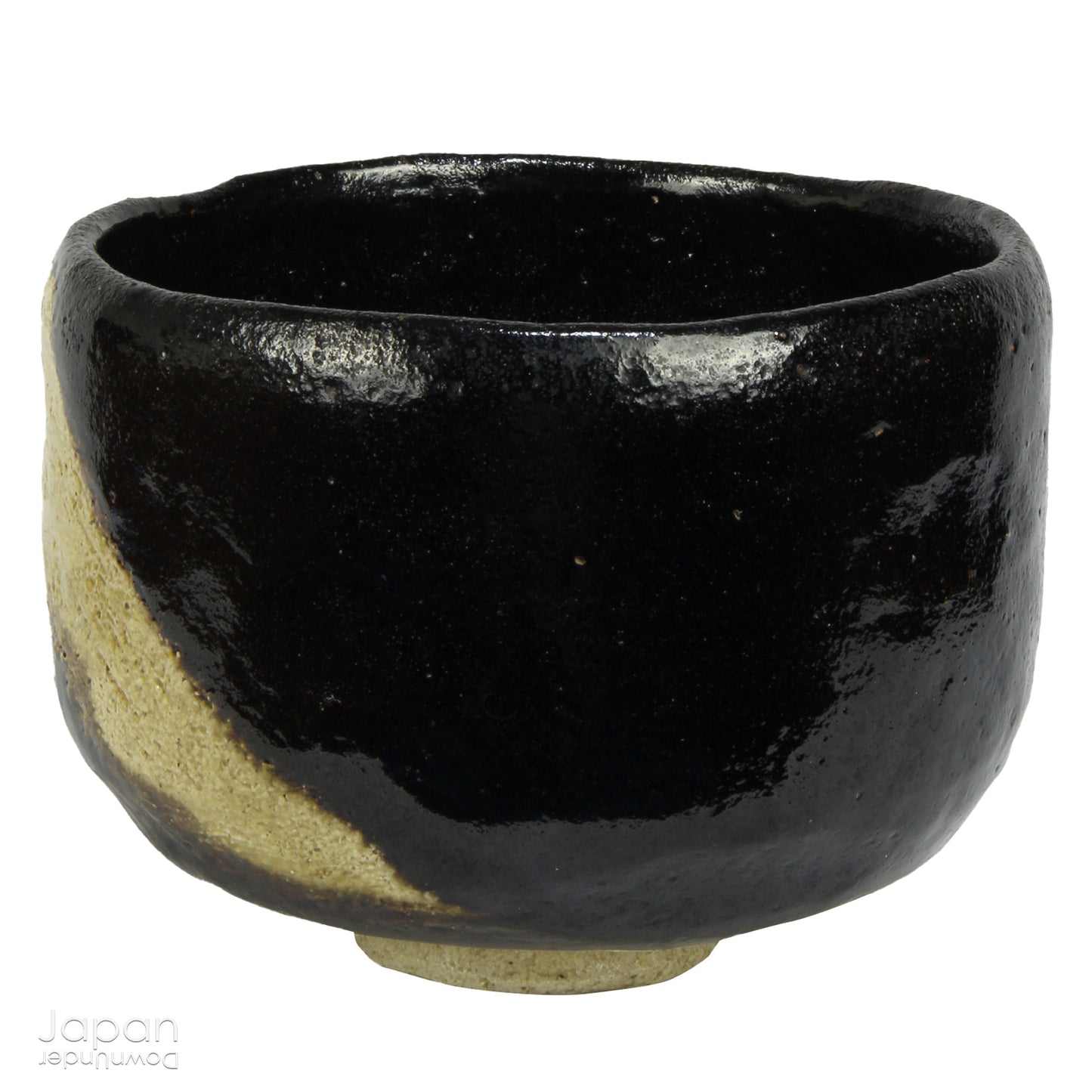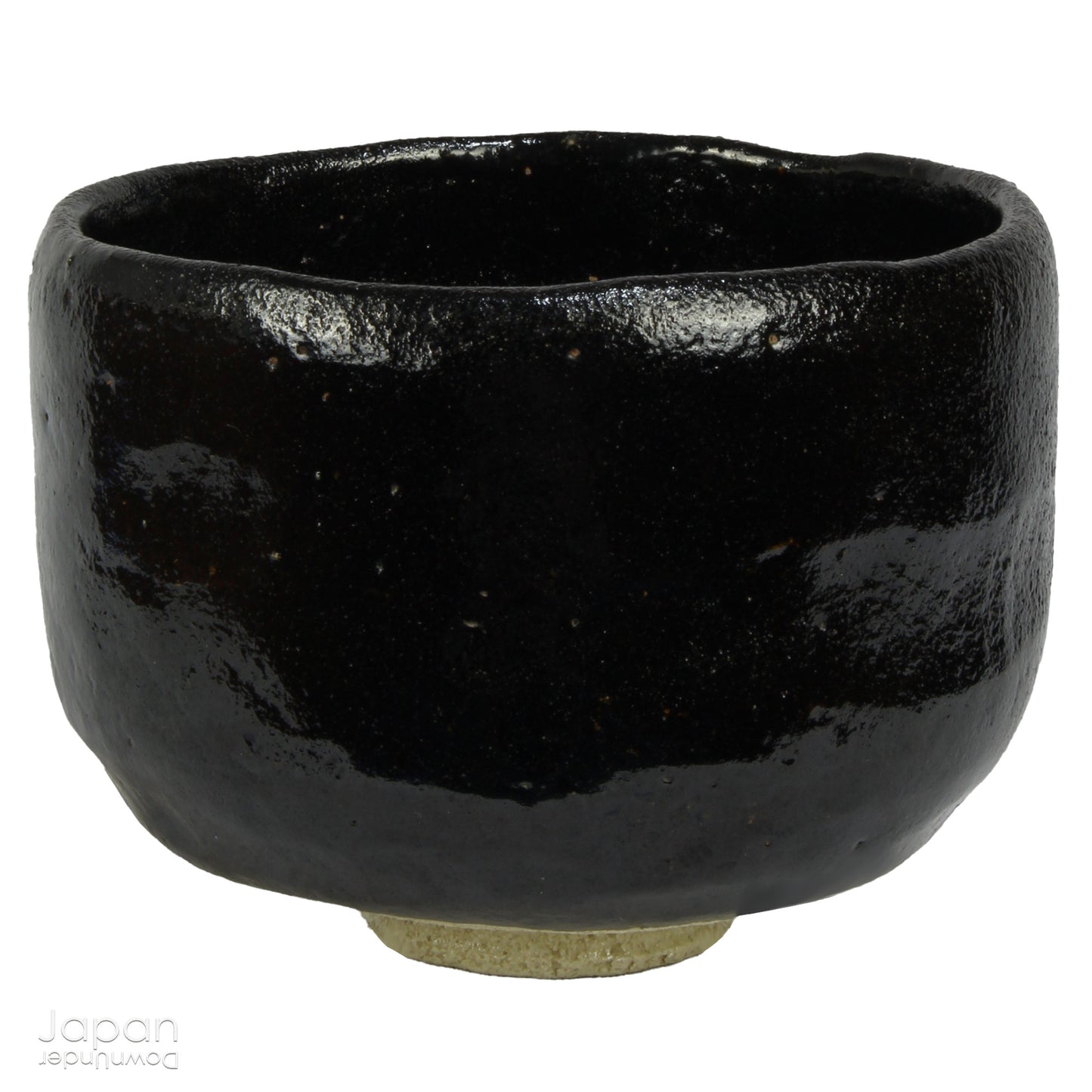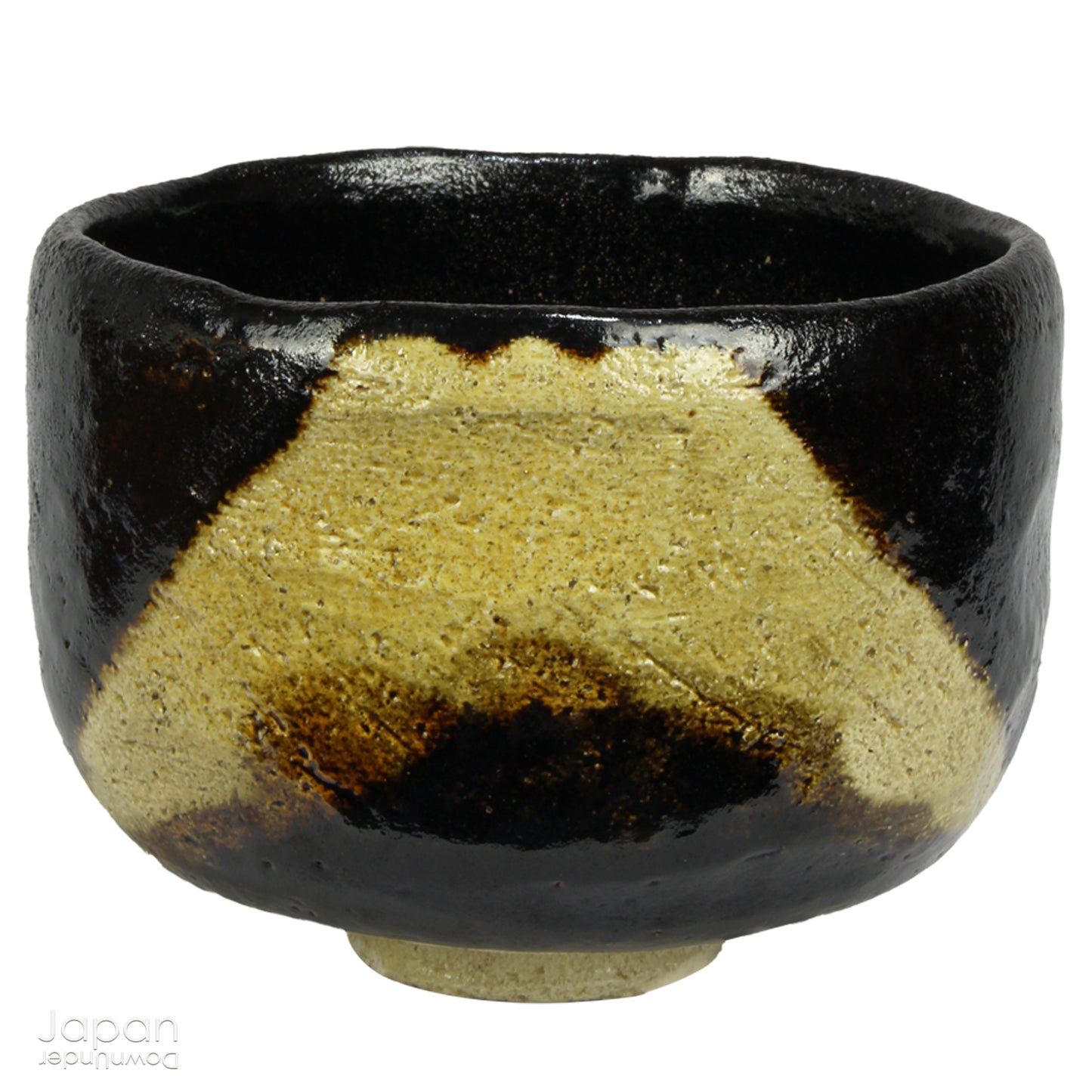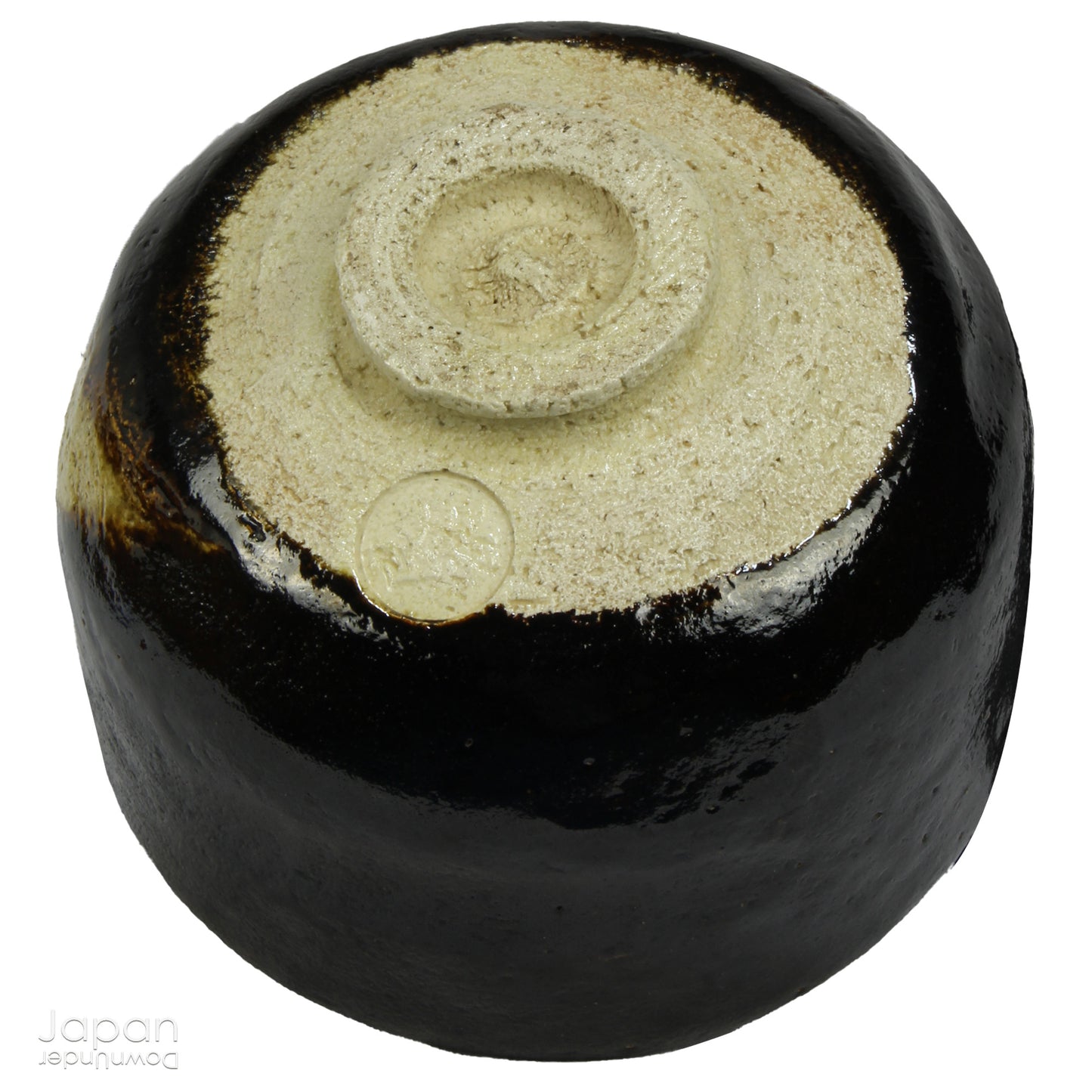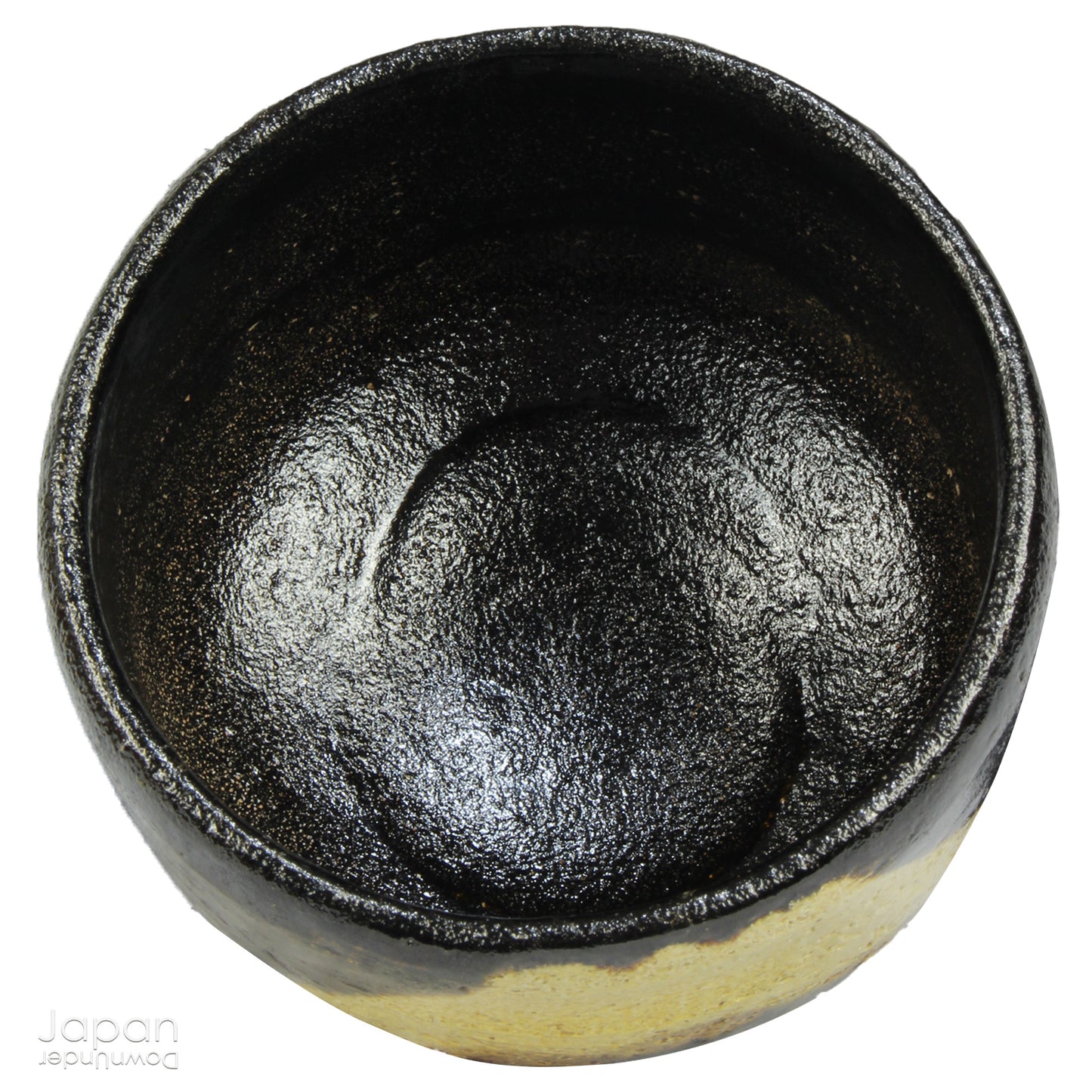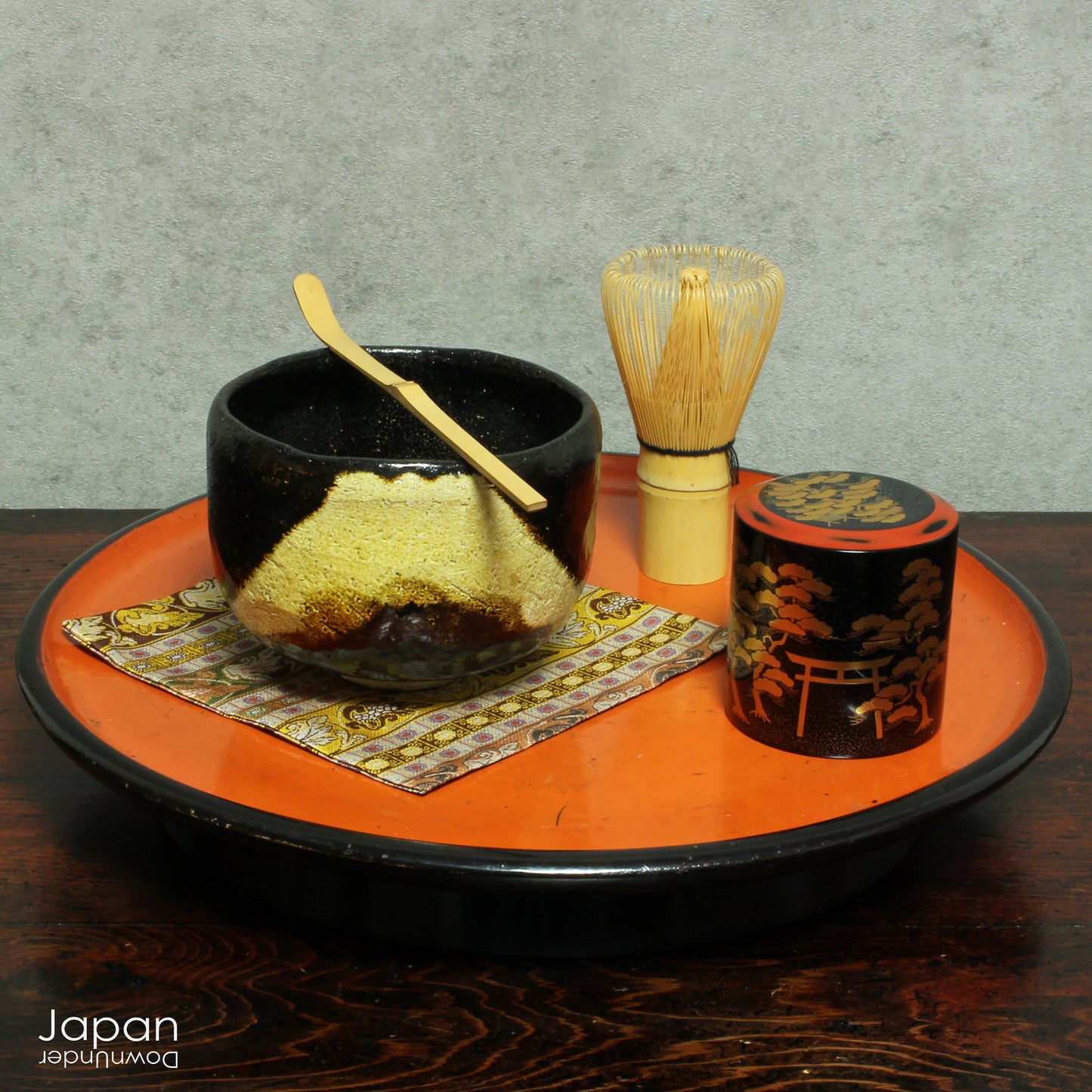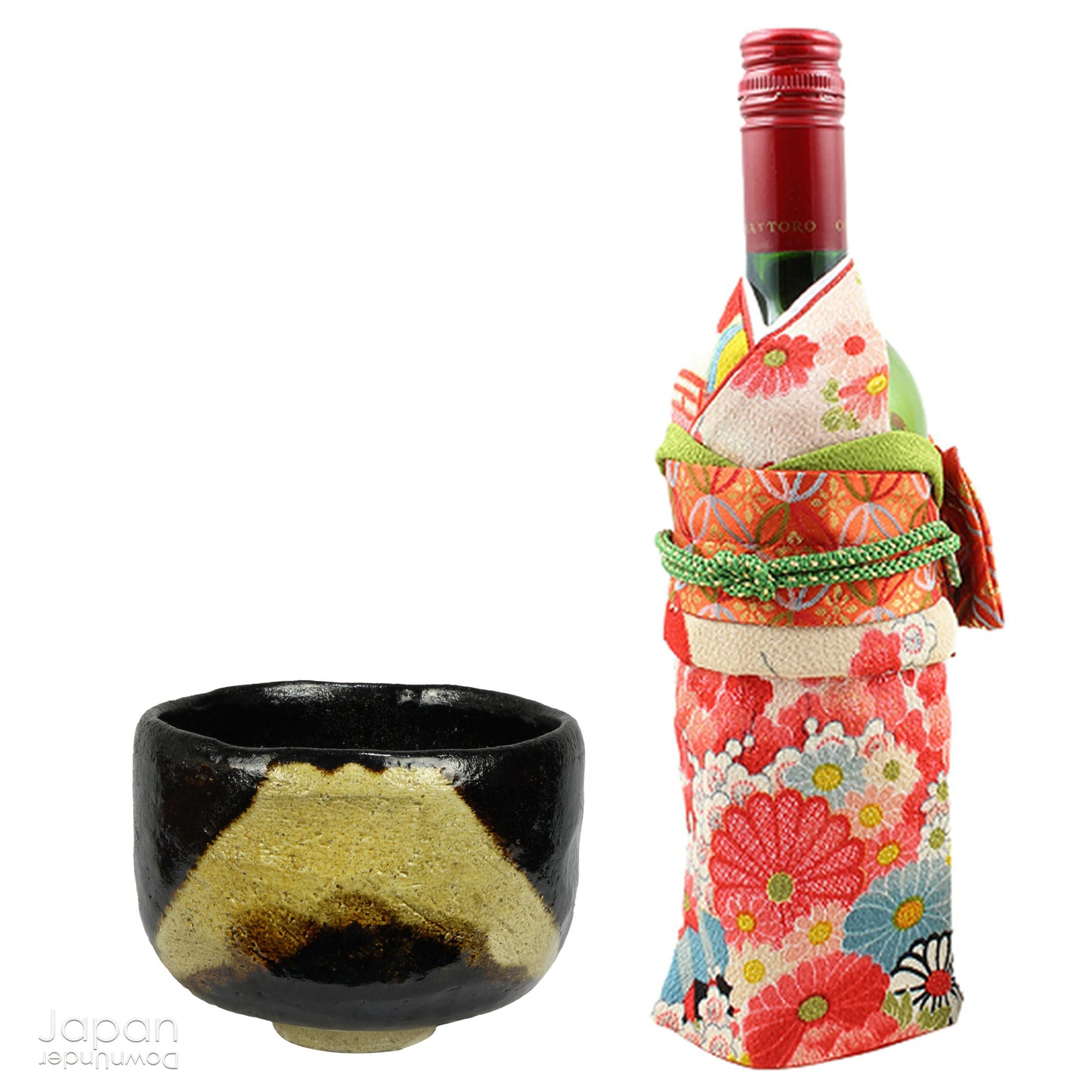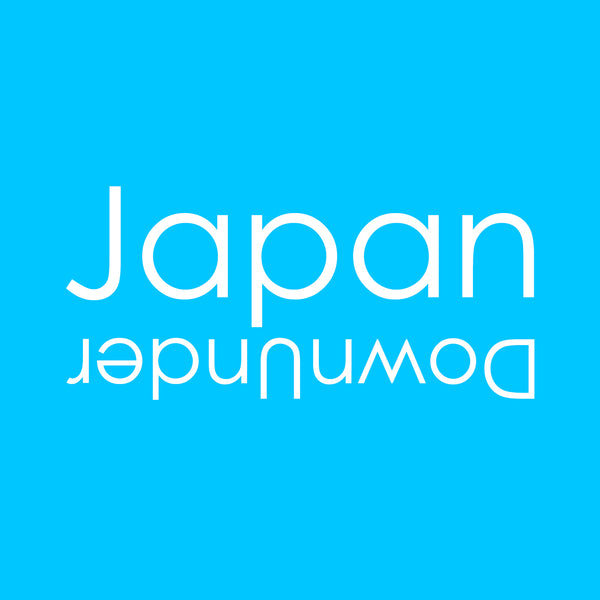JapanDownUnder
elegant vintage black raku matcha tea bowl - mt fuji design
elegant vintage black raku matcha tea bowl - mt fuji design
Couldn't load pickup availability
Love Japanese Style Like We Do
Transform your tea ritual into a refined experience with this stunning vintage black raku ware matcha tea bowl, elegantly adorned with a timeless image of the revered Mt. Fuji. The vibrant green of matcha tea beautifully contrasts against the glossy black finish of this handcrafted piece, bringing a touch of sophistication to any tea ceremony.
Handcrafted with meticulous care, this chawan is a true work of art. It showcases a serene depiction of Mt. Fuji, rendered in soft beige and brown tones that gracefully contrast with the rich black glaze. Mt. Fuji, a revered symbol in Japanese culture, represents good fortune, safety, and protection. The word “Fuji” sounds like "buji" (meaning “safety” or “peace”), and the majestic mountain’s sacred status further enhances its association with luck and tranquility.
The bowl is made from porous clay and has been hand-molded with a delicate indented ridge below the center, ensuring a comfortable fit for your hands. The rim features a subtle fluted design, and the smooth, glossy black glaze feels delightful to the touch. A true reflection of the Japanese philosophy that tea bowls, like people, are unique, with their own character that deepens over time.
The artist’s seal, Ryogaku, is inscribed on the underside, and the bowl is presented in its original wooden storage box, signed by the artist and accompanied by a yellow wrapping cloth. It is in very good vintage condition, with no cracks or chips, ensuring a perfect addition to your collection.
In Japanese tradition, tea utensils hold a special place, and this bowl will not only enhance the aesthetic of your tea ceremony but will grow more beautiful with use. As you sip your matcha, the natural oils from your hands and the rich green hues of the tea will gradually imbue the bowl with a warm, lustrous patina.
Embrace the beauty and tranquility of Japanese tea culture with this wonderful matcha bowl - a true symbol of craftsmanship, tradition, and good fortune.
- tea bowl measures 9 cm (3.5”) tall x 12 cm (4.7”) in diameter.
- total weight with box is 730 gm
(listing for boxed tea bowl only)
SHIPPING INFORMATION
- please read our shipping notes in shipping policy.
- we use recycle packaging and wrap for safety, rather than appearance.
ABOUT OUR VINTAGE, ANTIQUE AND OTHER ITEMS
We list pieces we feel are worthy of display. There may be scratches, dents, fading and signs of wear and tear. We try to explain the condition of each item exactly, but may miss something.
Information regarding the item and it’s age is obtained from dealers and our personal research. We do our best to give you the correct information but please be aware that we cannot guarantee this information.
Please message us prior to purchase with any questions you may have about our products.
CHAWAN
The chawan is a bowl used for preparing and drinking tea, and originated in China. The earliest chawan in Japan were imported from China between the 13th and the 16th centuries. Until the 15th century in Japan, tea was drunk mainly from a variety of Chinese tea bowls which the Japanese called ‘Tenmoku Chawan.’ This type of Chinese chawan was the preferred tea bowl for the Japanese tea ceremony until the 16th century. The Japanese term ‘tenmoku’ is derived from the name of the Tianmu Mountain, where Japanese priests visited Chinese temples and acquired these tea bowls to bring back to Japan.
By the end of the Kamakura period (1185–1333), as the custom of tea drinking spread throughout Japan and the Tenmoku chawan became desired by all ranks of society, the Japanese began to make their own copies in Seto (Aichi Prefecture). The Japanese particularly liked the bowls with a tapered shape, so most Seto-made Tenmoku chawan had this shape.
With the rise of the wabi tea ceremony in the late Muromachi period (1336–1573), the Ido chawan, kinds of Korean bowls mainly used for rice, also became highly prized in Japan. Korean bowls were a favourite of tea master Sen no Rikyū because of their rough simplicity.
Over time and with the development of the Japanese tea ceremony as a distinct form, local ceramics became more highly prized and developed. Around the Edo period, the chawan was mostly made in Japan.
The connection between ceramics and tea-drinking has a rich, culture. The qualities of handmade ceramic vessels have much in common with the virtues revered by the Japanese tea ceremony. Developing into a true art form, the ceramics and the simple act of tea drinking became symbolic in Japan of an appreciation of nature, simplicity and imperfection, and later as a higher art, advocating harmony and balance.
Tea bowls are never perfectly round, for they must fit the hands comfortably. A chawan is somewhat like a person. It has its own character and given time its own stories to tell. The bowl’s spirit comes from its maker and the people who have held it and enjoyed drinking tea from it.
RAKU WARE / RAKUYAKI
Rakuyaki is a type of Japanese pottery made in Kyoto. It is traditionally used in Japanese tea ceremonies, most often for chawan tea bowls. It is hand-shaped rather than thrown. The pottery is fairly light and porous due to the low firing temperatures. Lead glazes are used and the pieces are removed from the kiln while still glowing hot. In the traditional Japanese style, the fired raku piece is removed from the hot kiln and allowed to cool in the open air.
Share
